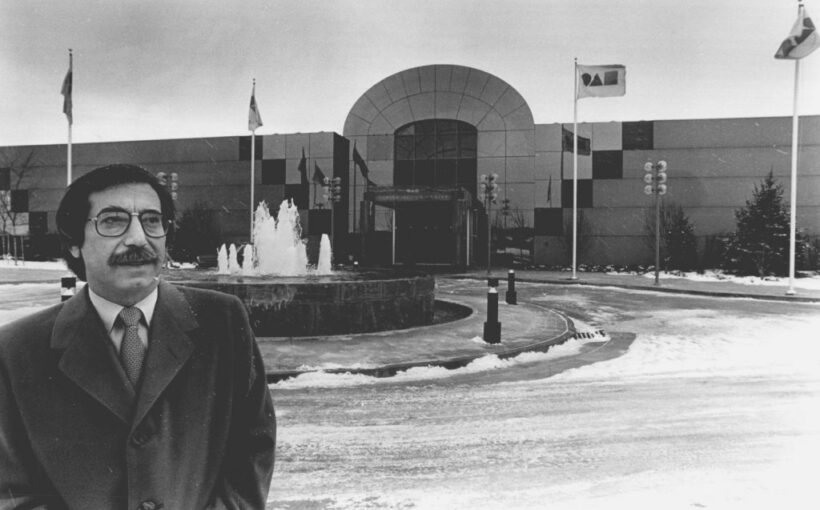Allan Reiver, a pioneering real estate developer in lower downtown Denver in the 1970s and 1980s, before the area became known as LoDo, has died in New York City. He was 78.
Reiver was an architectural antiques collector and dealer who had a downtown Denver warehouse full of treasures, said John Imbergamo, a restaurateur who leased space from Reiver at 1515 Market Street to open Cafe Giovanni in 1980.
“He was very much a pioneer in lower downtown. In fact he lived down there,” Imbergamo said. “He was a shrewd businessman.”
As part of the Cafe Giovanni lease, Imbergamo was invited by Reiver to comb the antiques warehouse and incorporate pieces into the upscale cafe, which had an 11-year run on Market Street. Imbergamo was able to furnish the front room of the cafe with floor-to-ceiling oak paneling and carved columns, he recalled. The warehouse was crammed with big pieces, salvaged from historic buildings and rooms by Reiver. The furnishings and collectibles included art, stained glass, mirrors, gargoyles, light fixtures, wood benches and hundreds of doors.
At the time, Reiver lived in a huge loft on Market Street, described by Imbergamo as “magnificent.” The loft, 75 feet wide and 125 feet long, was full of antiques and it included a 25-foot-by-25-foot shower stall with a basket swing inside it.
“It was wild,” Imbergamo said of the residence. “This was before LoDo. It was a very different place then.”
Bill Saslow, a former real estate partner in Denver with Reiver in the late-1970s and early ’80s, recalled his friend as a creative character who was trained in engineering, law and architecture.
“Allan was one of the most creative and brightest people I ever worked with,” Saslow said.
Reiver had a unique capacity to salvage materials from distressed or neglected buildings, finding value where others didn’t, Saslow said.
“He had the capacity to understand how buildings were built, and it enabled him to take them apart in a way where he could salvage material that turned out to be of great value,” Saslow said.
Reiver was a visionary in terms of real estate and development, his former business partner said.
“He certainly saw some opportunities in parts of the city that other people took quite a long while to realize,” Saslow said. “He was involved in lower downtown. Allan was there at the beginning.”
In the late 1980s, Reiver ran into financial troubles in his Broadway Plaza project. Reiver and his successor, Western Equities which bought him out in 1988, had pumped more than $80 million into Broadway Plaza, which was renamed Denver InterPlaza, and debts on the property grew to $115 million. The InterPlaza was riddled with vacancies and in 1990 an exclusive sale was held, dismantling a $3 million penthouse office that Reiver had crafted on the top floors of South Broadway’s defunct Montgomery Ward building. The proposed office, shopping and residential complex had been a cornerstone of the unsuccessful project. Among the items sold were six elevators — still in crates — that Reiver imported from England and never installed in the building. When purchased the elevators were valued at $400,000.
Reiver and his business, a real estate development firm called Realities Inc., were named in more than 30 lawsuits, according to The New York Times. He moved to New York City for a fresh start and opened an antiques gallery, salvaging treasures from abandoned mansions on Long Island. In 1989, he moved into a loft on Elizabeth Street in lower Manhattan. It’s where he salvaged an abandoned lot in Little Italy, transforming it into a garden oasis known as the Elizabeth Street Garden.
Reiver died on May 17 of cardiac arrest in New York. He is survived by his son, Joseph, and a daughter, Jackie.
Source: Read Full Article

